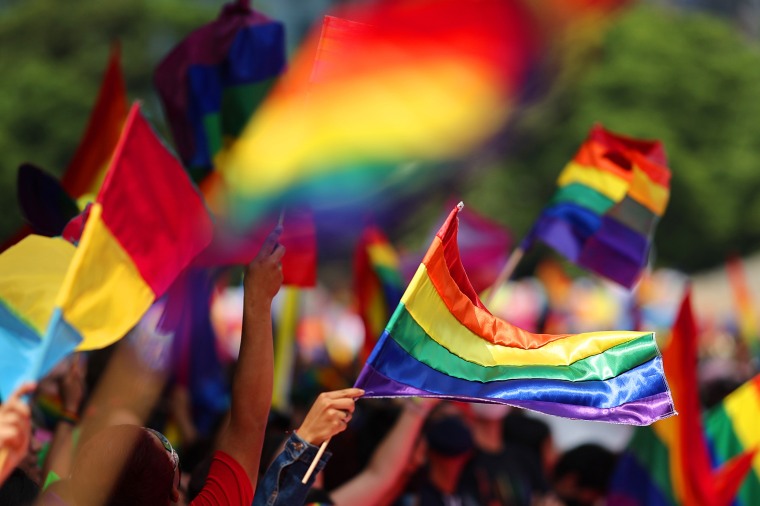A new national poll from PRRI finds Americans’ views on gender identity, pronoun use and teaching about same-sex relationships in school deeply divided by party affiliation, age and religion.
Overall, 65% of all Americans believe there are only two gender identities, while 34% disagree and say there are many gender identities.
But inside those numbers are sharp differences. Fully 90% of Republicans say there are just two genders, versus 66% of independents and 44% of Democrats who believe the same.
What’s more, 92% of white evangelical Christians, 71% of Black protestants, 69% of white Catholics and 66% of Latino Catholics believe there are only two genders, compared with 46% of those who don’t have a religious affiliation.
And by age, 69% of Silent Generation respondents and 68% of Baby Boomers say there are only two genders, versus 57% of younger respondents from Generation Z.
Similar divides exist on the matter of using gender-neutral pronouns — like “they” instead of “he” or “she.”
Overall in the PRRI poll, 35% of Americans say they are comfortable if a friend uses gender-neutral pronouns, while 40% say they are uncomfortable; 23% say it wouldn’t matter either way.
But by party, 65% of Republican say they’d be uncomfortable with gender-neutral pronouns, versus 38% of independents who say that and just 24% of Democrats.
Finally, the PRRI poll finds 34% of respondents saying that same-sex romantic relationships are never appropriate to discuss or teach in public K-12 schools.
That includes 55% of Republicans, but just 32% of independents and 18% of Democrats.
The online PRRI poll was conducted March 9-23 of more than 5,000 adults, and it has a margin of error of plus-minus 1.5 percentage points.

